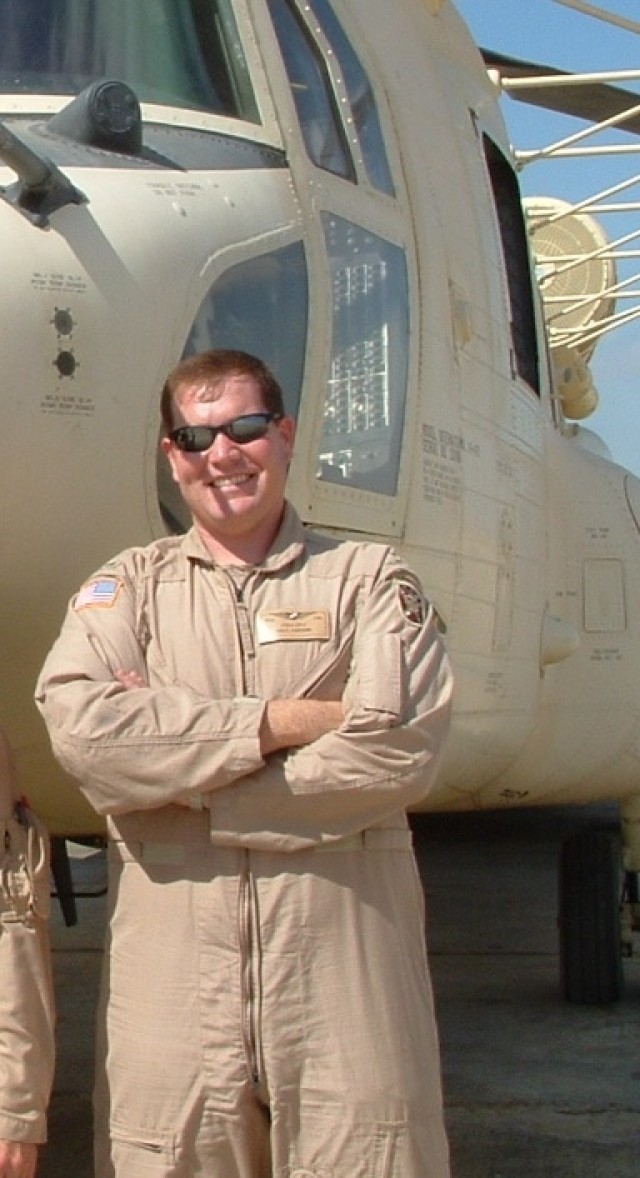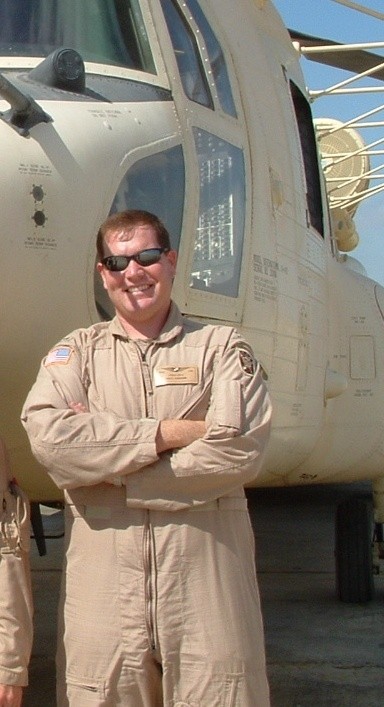
Chief Warrant Officer 3 Paul Yaeger refuses to be a victim of cancer even though it cost him dearly.
In 2005, the 101st Aviation Regiment Soldier was sent to Egypt to train the country's air force to fly Chinook helicopters. His work days were spent cruising above sandy deltas and his weekends fishing on the Red Sea.
It was a choice assignment, well-earned after two combat deployments and 15 years of Army service.
Yaeger's wife Mable and daughter Mary Katherine planned to join Yaeger in Egypt for the entire summer.
Soreness in his back prompted Yaeger to see a doctor. But the discomfort didn't seem to be a warning sign of a serious problem. After all, he was in Army shape and his family had no history of cancer.
Then doctors told Yaeger he was in the advanced stages of Hodgkin's lymphoma. The cancer was spreading through his lungs and bone marrow. The good news was that Hodgkin's disease is 80 percent curable. Nevertheless, the Soldier was grounded and had to return to the United States for seven months of chemotherapy. He has never been cleared for the cockpit since.
"A helicopter pilot is all I ever wanted to be," Yaeger said.
The disappointment still lingers but Yaeger channels it in a positive direction. Though he is still being treated himself, he also serves as cadre in the Warrior Transition Unite as the acting executive officer to Company Commander Capt. Anthony Bradway.
"[Yaeger] is very amenable," Bradway said. "If he is down, he never shows that to the Soldiers."
Bradway relies on Yaeger to counsel civilian employees, write operations orders, update rosters and perform other tasks vital to the WTU mission.
The work often requires Yaeger to handle confidential files with medical information.
"He has my full trust and confidence," Bradway said.
Yaeger says the WTU work gives him a sense of accomplishment because he knows well the tough times injured Soldiers and their families face.
One of the heaviest psychological burdens is loneliness, Yaeger said. Few, even among Soldiers, can relate to the feelings of being pulled from one's unit and prohibited from serving where the action is.
While receiving chemotherapy first at the Walter Reed Army Medical Center in Washington D.C. and then from a private oncology practice in Clarksville, Tenn., all Yaeger could think about was getting back in the air. Treatment sent the lymphoma completely into remission, fueling Yaeger's hope of a return.
Then another blow: a chest scan revealed Yaeger's lungs were permanently damaged. He only had about 45 percent breathing capacity and required long-term steroid and oxygen treatment.
Yaeger is now planning a future without flying. But it was not as gloomy as he feared. The WTU work schedule enabled him to take college courses. He began working on his computer science degree and planning for a civilian career.
"One of the best perks in WTU, is having so much time to complete education," Yaeger said.
Between work and school and home life, Yaeger's days are full and productive.
"I just take things slower and don't try to do it all at once," Yaeger said.

Social Sharing